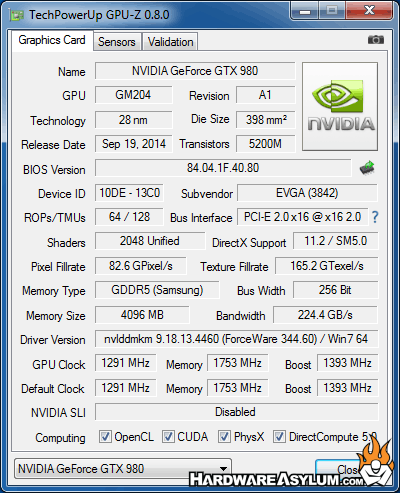
- #Desktop graphic card benchmark drivers#
- #Desktop graphic card benchmark driver#
- #Desktop graphic card benchmark series#
#Desktop graphic card benchmark driver#
The driver installed on the test system is designated as version 30.0.101.1723, newer than what's publicly available for Arc mobile GPUs as well as Intel Xe integrated graphics.
#Desktop graphic card benchmark drivers#
These results should be taken with a grain of salt, but there is one interesting detail that suggests Intel is hard at work trying to improve the drivers for Arc GPUs. There are two scores - 39 and 45 points, respectively, suggesting the Arc A770 is capable of roughly half the performance of an RTX 3070. Interestingly, the test system uses an older, Intel Core i5-9600K CPU, and the motherboard designation suggests this is an internal development kit. The A770 GPU has also surfaced on Puget Bench's database with a new benchmark result for Davinci Resolve workloads. Although this is supposed to be one of the higher-end Alchemist GPUs, early OpenCL benchmarks suggest it will more likely compete with mainstream GPUs like AMD's RX 6600 XT and Nvidia's RTX 3050. This has delayed the launch of the desktop Arc graphics cards by months, but that hasn't stopped models like the A770 from making an appearance online. The company managed to brew some enthusiasm amid a troubled GPU market, but it appears the drivers for Team Blue's dedicated graphics solutions are far from ready with some features having a significant impact on the overall performance. Intel's mobile Arc A-series GPU launch was largely a paper launch, with only a couple of laptop models available on the South Korean market as of writing this. Early benchmarks suggest the Intel part will be weaker than either of the two, but there's still hope since Team Blue appears to be burning the midnight oil to get the drivers right before the much-awaited summer launch. If you have any questions about the commenting policy, please let us know through the Contact Page.In context: Intel's Arc A770 is just one step down from the Arc Limited Edition desktop graphics card, and gamers are hoping it will be powerful enough to rival Nvidia's RTX 3070 Ti and AMD's RX 6700 XT.VideoCardz Moderating Team reserves the right to edit or delete any comments submitted to the site without notice.Please also note that comments that attack or harass an individual directly will result in a ban without warning. A failure to comply with these rules will result in a warning and, in extreme cases, a ban.Comments complaining about the article subject or its source will be removed.Note this may include abusive, threatening, pornographic, offensive, misleading, or libelous language. Comments and usernames containing language or concepts that could be deemed offensive will be deleted.Discussions about politics are not allowed on this website. Including a link to relevant content is permitted, but comments should be relevant to the post topic. Comments deemed to be spam or solely promotional in nature will be deleted.Bear in mind though, OpenCL is not a gaming benchmark, and probably not a focus for the Intel team for Arc Alchemist GPUs right now.
#Desktop graphic card benchmark series#
It is nowhere near the rumored RTX 3070Ti/3070 series yet. With a score of 85448 points, this engineering sample enters the performance segment of GeForce RTX 20 Turing GPUs, such as RTX 2070/2060. Intel Arc GPU with 512 EUs OpenCL benchmark result, Source: Geekbench

Intel Arc GPU with 512 EUs and 2.4 GHz GPU clock, Source: GeekbenchĪrc Alchemist card scored 85448 points in the overall OpenCL test:


This is the flagship model from the upcoming series, most likely a desktop GPU at this point, which is now officially launching in the second quarter this year.

The Xe Graphics with 512 Compute Units refers to the Arc Alchemist graphics card equipped with DG2-512 GPU. Intel Arc Alchemist engineering sample, Source: VideoCardz According to the data collected by Geekbench software, the system was equipped with a Core i9-9600K processor with 6 cores and 6 threads. The card which is supposedly running on on “Coffee Lake Client Platform” is most likely under testing at Intel’s or an undisclosed board partner’s labs. Intel Arc Alchemist has been spotted running 2400 MHz clock speed during the Geekbench OpenCL test. Intel Arc Alchemist might feature a high clock speed of 2.4 GHz


 0 kommentar(er)
0 kommentar(er)
